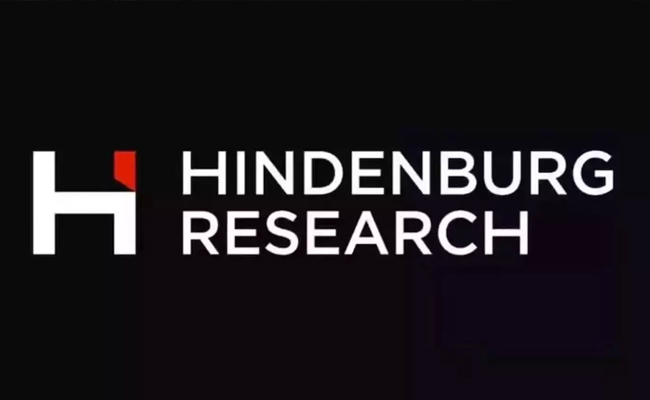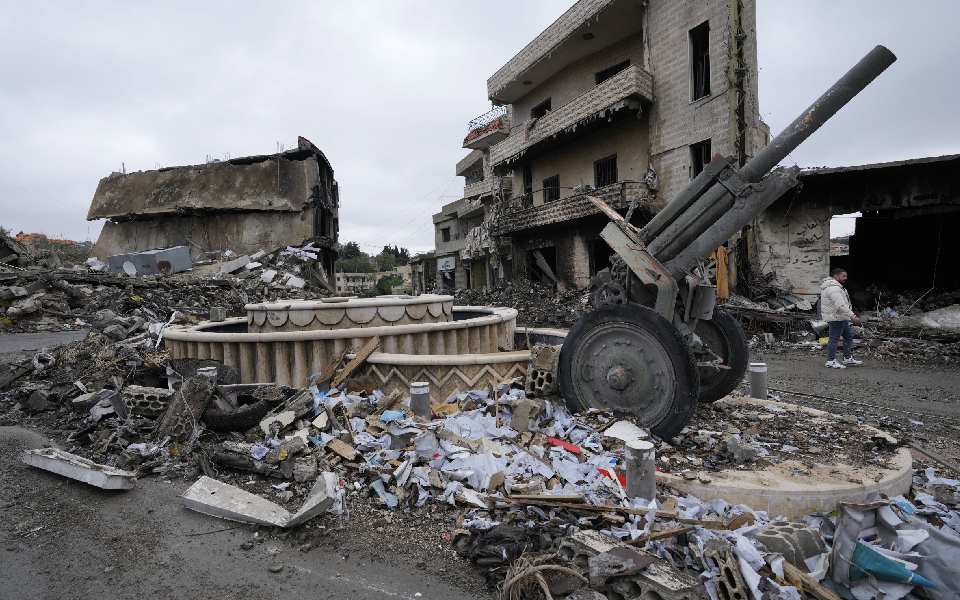New Delhi (PTI): US-based short seller Hindenburg Research has questioned SEBI chief Madhabi Puri Buch's "complete silence" on fresh allegations of impropriety, conflict of interest and accepting payments from companies while serving as a member of the market regulator.
Hindenburg, which had in January 2023 accused Adani Group of using tax havens to sidestep local market regulations, had last month alleged that Securities and Exchange Board of India (SEBI) chairperson Buch's previous investments and dealings may be behind the slow probe against the conglomerate.
While Buch and the Adani Group had denied last month's allegations, the opposition Congress party has in recent days made a series of allegations against Buch including holding 99 per cent shares in a company "actively providing advisory/consultancy services till date" and her husband Dhaval Buch earning income from companies that were being adjudicated by her.
Buch, who has so far not responded to the allegations, on Thursday cancelled her appearance at the NaBFID Infrastructure Conclave in Mumbai. She was listed as a keynote speaker at the conclave.
"New allegations have emerged that the private consulting entity, 99 per cent owned by SEBI Chair Madhabi Buch, accepted payments from multiple listed companies regulated by SEBI during her time as SEBI Whole-Time Member. The companies include: Mahindra & Mahindra, ICICI Bank, Dr. Reddy's and Pidilite," Hindenburg said in a post on X, formerly Twitter.
These allegations, it said, "apply to Buch's Indian consulting entity with no details thus far on Buch's Singapore-based consulting entity."
"Buch has maintained her complete silence for weeks on all of the emerging issues," it added.
Hindenburg had on August 11 alleged that Buch had previous investments in an offshore fund, also used by the Adani Group.
Buch and her husband had denied those allegations.
Since then, Congress and Zee group chairman Subhash Chandra have levelled charges against them but they have not responded so far.
Congress has alleged that Dhaval Buch earned Rs 4.78 crore from Mahindra Group at a time when the regulator was investigating it for market infractions.
Responding to the allegation, Mahindra & Mahindra has stated that the "Group hired Dhaval Buch in 2019 specifically for his expertise in supply chain and sourcing, soon after he retired as Unilever's Global Chief Procurement Officer."
It said he joined Mahindra Group almost 3 years before Madhabi Puri Buch was appointed as SEBI chairperson. "Compensation has been specifically and only for Buch's supply chain expertise and management acumen, based on his global experience at Unilever."
Prior to becoming chairperson, she was a Whole-Time Member of SEBI from April 2017.
Separately, Dr Reddy's Laboratories and Pidilite Industries also stated that they had engaged the services of Dhaval Buch when his wife held second highest office at SEBI but denied allegations of any conflict.
While Dr Reddy's said it paid Rs 6.58 lakh to Buch in exchange for his services, Pidilite said that it has never been under any SEBI enquiries or orders.
Last month, Hindenburg had alleged that the Buchs opened an account in 2015 with a wealth management firm in Singapore to invest undisclosed sum of money in a Mauritius-registered offshoot of a Bermuda-based fund. The Mauritian fund was run by an Adani director and its ultimate parent was the vehicle used by two Adani associates to round-trip funds and inflate stock prices.
Hindenburg also alleged that she held 100 per cent interest in a Singaporean consulting firm, Agora Partners from April 2017 to March 2022 while she was a Whole-Time Member in SEBI. She passed on the shares to her husband two weeks after her appointment as the SEBI chairperson.
Responding, the Buchs had called Hindenburg's latest tirade an attack on the credibility of SEBI and attempted "character assassination".
Let the Truth be known. If you read VB and like VB, please be a VB Supporter and Help us deliver the Truth to one and all.
Beirut, Nov 28: The Israeli military on Thursday said its warplanes fired on southern Lebanon after detecting Hezbollah activity at a rocket storage facility, the first Israeli airstrike a day after a ceasefire between Israel and Hezbollah took hold.
There was no immediate word on casualties from Israel's aerial attack, which came hours after the Israeli military said it fired on people trying to return to certain areas in southern Lebanon. Israel said they were violating the ceasefire agreement, without providing details. Lebanon's state-run National News Agency said two people were wounded.
The back-to-back incidents stirred unease about the agreement, brokered by the United States and France, which includes an initial two-month ceasefire in which Hezbollah members are to withdraw north of the Litani River and Israeli forces are to return to their side of the border. The buffer zone would be patrolled by Lebanese troops and UN peacekeepers.
On Thursday, the second day of a ceasefire after more than a year of bloody conflict between Israel and Hezbollah, Lebanon's state news agency reported that Israeli fire targeted civilians in Markaba, close to the border, without providing further details. Israel said it fired artillery in three other locations near the border. There were no immediate reports of casualties.
An Associated Press reporter in northern Israel near the border heard Israeli drones buzzing overhead and the sound of artillery strikes from the Lebanese side.
The Israeli military said in a statement that “several suspects were identified arriving with vehicles to a number of areas in southern Lebanon, breaching the conditions of the ceasefire.” It said troops “opened fire toward them” and would “actively enforce violations of the ceasefire agreement.”
Israeli officials have said forces will be withdrawn gradually as it ensures that the agreement is being enforced. Israel has warned people not to return to areas where troops are deployed, and says it reserves the right to strike Hezbollah if it violates the terms of the truce.
A Lebanese military official said Lebanese troops would gradually deploy in the south as Israeli troops withdraw. The official spoke on condition of anonymity because they were not authorized to brief media.
The ceasefire agreement announced late Tuesday ended 14 months of conflict between Israel and Hezbollah that began a day after Hamas' Oct. 7, 2023 attack out of Gaza, when the Lebanese Hezbollah group began firing rockets, drones and missiles in solidarity.
Israel retaliated with airstrikes, and the conflict steadily intensified for nearly a year before boiling over into all-out war in mid-September. The war in Gaza is still raging with no end in sight.
More than 3,760 people were killed by Israeli fire in Lebanon during the conflict, many of them civilians, according to Lebanese health officials. The fighting killed more than 70 people in Israel — over half of them civilians — as well as dozens of Israeli soldiers fighting in southern Lebanon.
Some 1.2 million people were displaced in Lebanon, and thousands began streaming back to their homes on Wednesday despite warnings from the Lebanese military and the Israeli army to stay out of certain areas. Some 50,000 people were displaced on the Israeli side, but few have returned and the communities near the northern border are still largely deserted.
In Menara, an Israeli community on the border with views into Lebanon, around three quarters of homes are damaged, some with collapsed roofs and burnt-out interiors. A few residents could be seen gathering their belongings on Thursday before leaving again.





